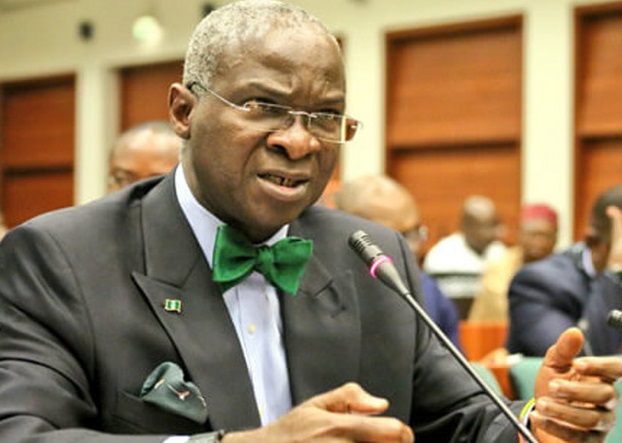Health
Fashola craves more investment in medical research at NIMR foundation fund raising

The Minister for Works and Housing, Mr Babatunde Fashola, has emphasised the need to invest more in health research to proffer solutions to prevailing health challenges in the country.
Fashola stated this on Thursday in Lagos at a ceremony to launch and raise funds for the Nigeria Institute of Medical Research Foundation.
Fashola, who is the Chairman of the Foundation, said that such investment would increase and boost capacity of researchers in the country.
“There is need to develop human capacity in medical research to proffer solution to existing diseases of public health concern and other pandemics like COVID-19.”
“We have outstanding researchers, but what is missing is why we are here today to raise funds to encourage and build the needed capacity.”
“This event today is about our country, our children and children yet unborn; we have no political identity as members of NIMR Foundation trustees.”
“The NIMR Foundation is a non-profit organisation initiated to raise and mobilise funds to promote medical research work that will be of benefit to Nigerians,” he said.
According to Fashola, the foundation requires N10 billion to scale up the country’s capacity in research.
“NIMR will achieve the vision of her founding fathers if we can raise the billions we are targeting,” he said.
He added that the initiative would also create more direct and indirect employment opportunities for Nigerians.
“In countries like the U.S and China, medical research creates millions of jobs; we can replicate this if we set our priority right,” he said.
Governor Kayode Fayemi of Ekiti State, Chairman of the Nigeria Governors Forum, who represented the 36 governors, commended the foundation for the initiative which he described as timely.
“My colleagues admire and support the NIMR Foundation because we all know what happened globally, in the last 18 months.”
“We will support this noble cause. We will do everything to ensure NIMR foundation achieved its objective,” he said.
Also speaking, Mr Peter Amangbo, Chairman of Globus Bank, said it was high time the country developed its own localised solutions to health problems.
“This is the beginning of the search for N10 billion fund to develop human capacity and train people locally.”
“COVID-19 is a very big pointer to the importance of this event today.”
“Apart from COVID-19, we are also faced with a lot of existing health issues like malaria, tropical diseases and others that need local intervention.”
“These realities emphasise the need to develop our own localised solution through vaccine research and we should also know that the government cannot do it alone,” he said.
Prof. Babatunde Salako, the Director-General of NIMR, in his address, said that the foundation was initiated to address challenges hindering researchers from carrying out ground-breaking research work to tackle some of the health threats in Nigeria.
“Nigeria, although Africa’s largest economy with potentially the highest concentration of medical schools and universities on the continent, faces some of the worst public health challenges, including the highest global burden of malaria.”
“Others are high burden of HIV, tuberculosis and emerging infections such as Lassa Fever, recurrent outbreaks of cholera, meningitis, yellow fever and increasing levels of non-communicable diseases.”
“This situation is attributed largely to the insufficient number of world class researchers and scientists to conduct research that could ensure the development of vaccines, medicines and technologies to address healthcare needs.”
“Currently, promising junior, mid-level and well-trained senior researchers have left the country because of lack of research funds to enable them conduct high quality research in the country.”
“There is an urgent need to reverse the challenge through a sustained funding mechanism over the next decade.”
“With more funds, we can systematically train critical mass of researchers to become global leaders.”
“If any nation must develop, it must necessarily fund research and also encourage the private sector to do more,” he declared.
Our correspondent reports that N120 million was collected while the Governors’ Forum, Dangote Foundation and other donors, whose donations were described by Fasola as “heavy”, preferred that the amounts be kept secret.
Of the donations made public, the Edo government gave N50 million.




 Davido's Net Worth & Lifestyle
Davido's Net Worth & Lifestyle 
